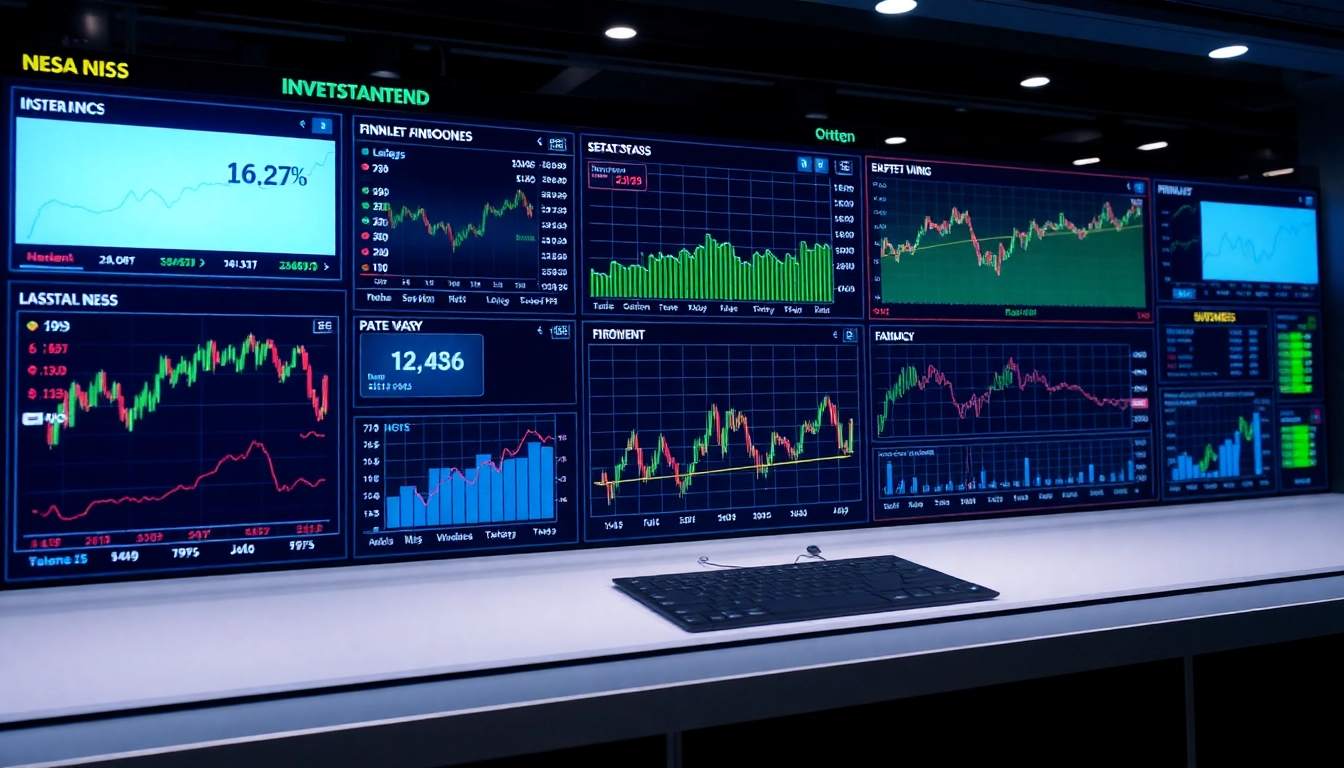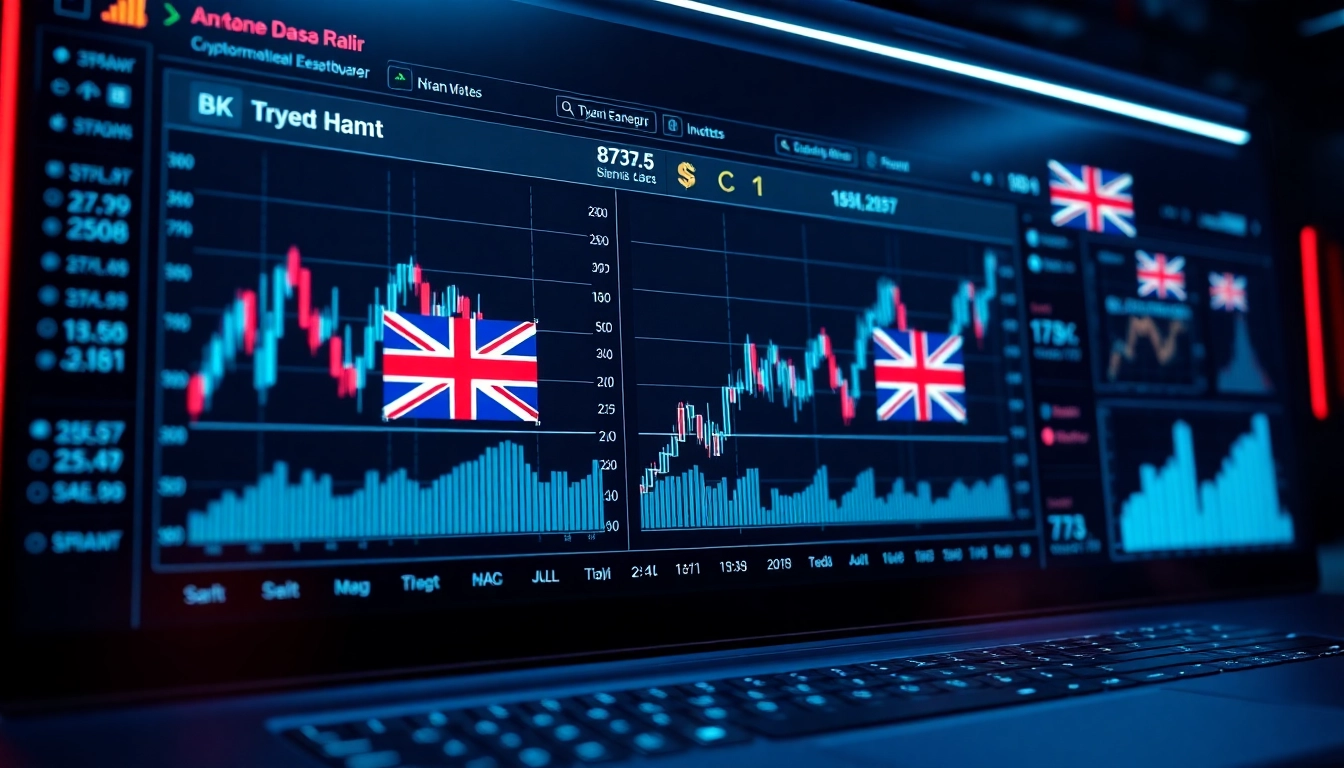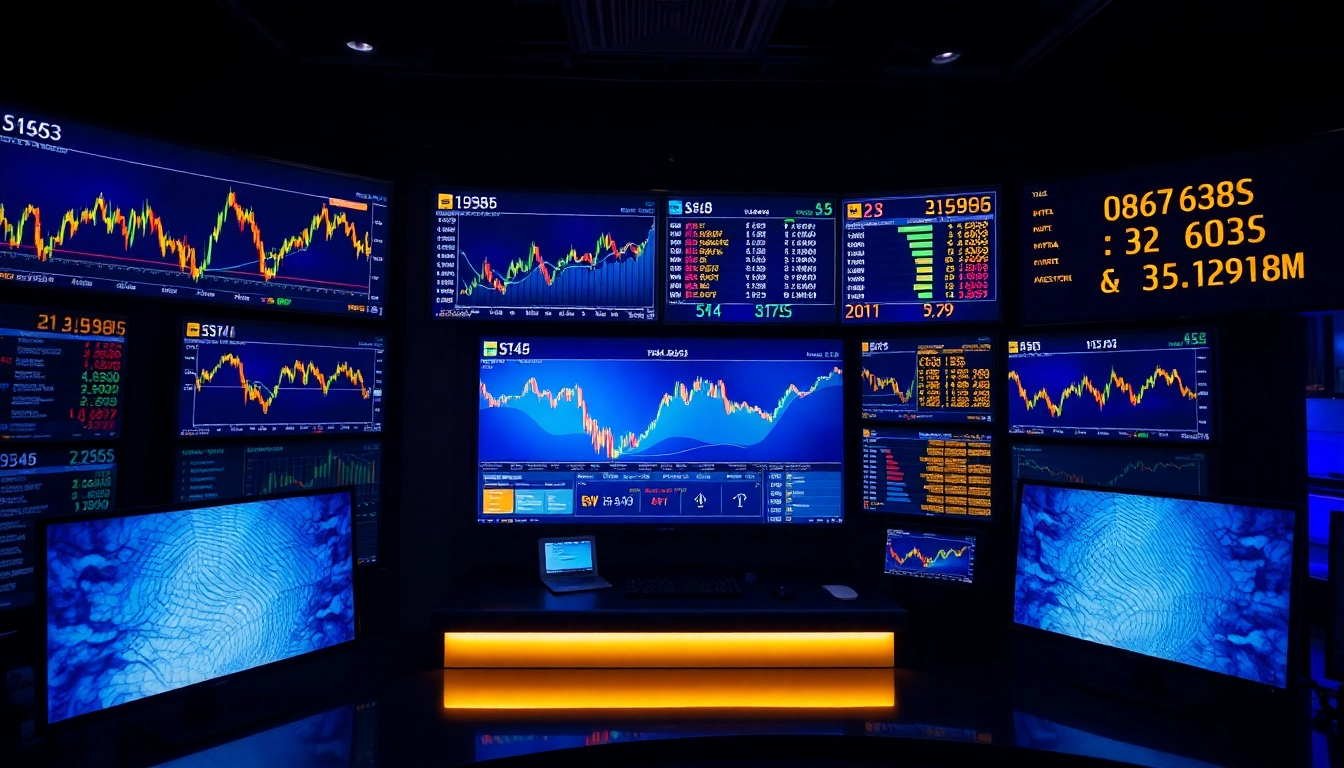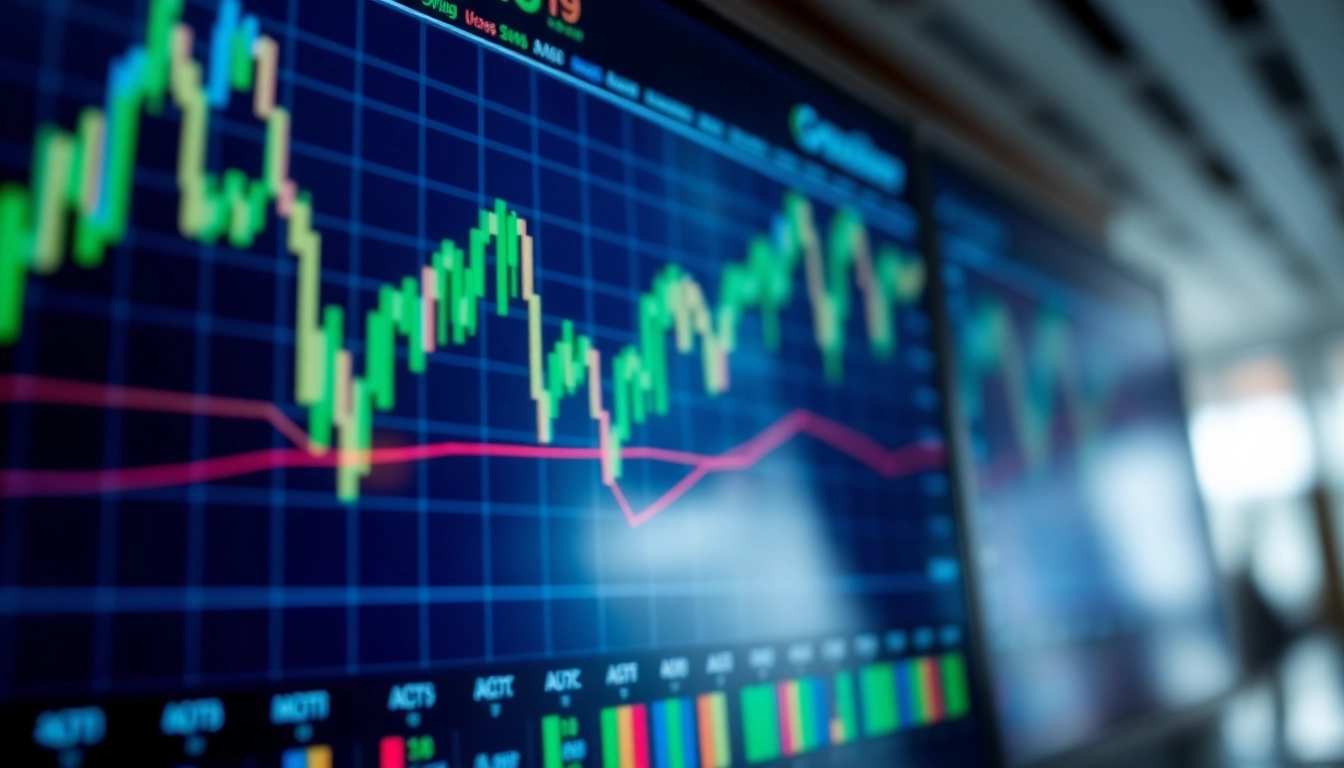Understanding the Scope of Global Market News
Defining Global Market News and Its Importance
Global market news encompasses the latest updates, developments, and insights from international financial markets, economies, and industries. It includes real-time data on stock indices, currency fluctuations, commodity prices, geopolitical events, and macroeconomic indicators. In today’s interconnected world, global market news is crucial for investors, policymakers, business leaders, and analysts to make informed decisions. It influences investment strategies, risk assessments, and economic forecasts, emphasizing the need for timely and accurate information. As markets respond swiftly to global events like political upheavals, trade agreements, or technological breakthroughs, staying updated with comprehensive Global Market News provides a competitive edge.
Key Indicators and Data Sources
Effective analysis of global markets relies on several key indicators. Stock indices such as the S&P 500, FTSE 100, Nikkei 225, and MSCI World serve as barometers for overall market health. Currency exchange rates, interest rates (like the LIBOR or Federal Funds Rate), commodity prices (oil, gold, agricultural products), and bond yields offer further insight into economic stability and investor sentiment. Reliable data sources include established financial news outlets like Reuters, Bloomberg, CNBC, and specialized platforms such as Moneycontrol and Yahoo Finance. Leveraging these sources ensures access to real-time updates, historical data, and in-depth reports that are essential for comprehensive market analysis.
Current Trends Shaping International Markets
Several overarching trends are currently molding the global financial landscape. Technology-driven innovations such as artificial intelligence, blockchain, and fintech are transforming trading, investment, and data analysis. Geopolitical tensions, including trade disputes and regional conflicts, contribute to market volatility. Moreover, macroeconomic policies, particularly interest rate adjustments by major central banks like the Federal Reserve and the European Central Bank, influence capital flows. Environmental, Social, and Governance (ESG) investing is gaining prominence, shifting capital toward sustainable ventures. Additionally, the post-pandemic economic recovery has created diverse opportunities and challenges, prompting investors to adapt to new risk profiles and market dynamics. Recognizing these trends helps stakeholders anticipate market movements and identify emerging opportunities.
Analyzing Major Global Market Headlines
Top Stories and Their Market Impacts
Recent top headlines provide a window into market sentiment and potential directional shifts. For instance, reports on tariff uncertainties, like those highlighted by Reuters indicating that Wall Street hit over a one-week low amid trade policy concerns, directly impact investor confidence and stock valuations. Similarly, news of bond sell-offs spilling into equity markets, as covered by the Financial Times, reflects rising yields and tightening liquidity, often leading to downturns. These headlines serve as early signals for traders and investors to reassess risk exposure and adjust portfolios accordingly. A systematic approach to monitoring and interpreting such stories can improve timing and decision-making accuracy.
Regional Market Movements and Highlights
Understanding regional specificities is vital. North American markets, driven by corporate earnings and macroeconomic data, often react distinctly compared to Asian or European markets, which are sensitive to geopolitical developments or monetary policies. For example, Asian markets like the Nikkei 225 often respond to China’s economic data and U.S.-China trade relations. European indices, such as the DAX or FTSE, are more influenced by Brexit negotiations and European Central Bank policies. Monitoring regional headlines helps investors identify localized risks and opportunities, ensuring portfolio diversification and risk mitigation aligned with regional economic cycles.
How Global Events Influence Market Volatility
Global events—ranging from political elections, policy shifts, geopolitical conflicts, to natural disasters—have immediate repercussions on markets. For example, trade wars can suppress growth prospects, leading to stock sell-offs and currency depreciation. Conversely, positive geopolitical developments or policy reforms can stimulate market rallies. During periods of heightened global tension, volatility indices like the VIX spike, indicating increased uncertainty. Investors must understand the causal links between such events and market reactions to develop robust risk management strategies, including hedging and diversification. Staying observant and analytical during such times prevents reactive panic and promotes strategic positioning.
Strategies for Staying Updated with Global Market News
Utilizing Reliable News Platforms
Choosing authoritative news outlets—such as Reuters, Bloomberg, CNBC, and Financial Times—is essential for receiving accurate and timely updates. These platforms offer comprehensive coverage, expert analysis, data dashboards, and multimedia content. Subscribing to tailored news alerts ensures that investors receive critical information directly related to their holdings or interests, minimizing information overload while maximizing relevance. Establishing a routine of daily review of such platforms supports proactive decision-making.
Incorporating Market News into Investment Decisions
The key to leveraging market news effectively is contextual analysis. Rather than reacting impulsively, investors should interpret headlines within broader economic frameworks. For instance, a surge in commodity prices due to geopolitical tensions might signal inflationary pressures, prompting a reevaluation of bond holdings. Similarly, monetary easing announced by major central banks can signal opportunities in equities or currencies. Developing a systematic process to integrate news with technical and fundamental analysis enhances strategic agility, aligns investment tactics with current conditions, and improves overall portfolio resilience.
Tools and Technologies for Real-Time Alerts
Modern investors benefit from technology-enabled tools like financial news aggregators, mobile apps, and AI-powered analytics platforms. These facilitate real-time alerts on market movements, economic releases, or breaking news. Tools such as Bloomberg Terminal, Investing.com alerts, or custom RSS feeds enable swift reaction to unfolding events. Additionally, AI-driven sentiment analysis can provide insights into market mood shifts based on news tone, social media activity, and macroeconomic reports. Employing these tools ensures timely awareness and quick decision-making in volatile environments.
Interpreting Market Data and Headlines Effectively
Distinguishing Between Noise and Valuable Insights
Market noise often comprises short-term fluctuations or sensational headlines that do not impact fundamental value. Effective investors learn to filter relevant signals from irrelevant chatter. This involves understanding the source credibility, cross-referencing multiple outlets, and analyzing the context of news. Quantitative indicators, such as volume surges or price gaps, combined with qualitative assessments, help in distinguishing meaningful developments from transient noise.
Connecting News Events to Market Trends
Connecting specific news to broader market trends requires a disciplined approach. For example, persistent inflation reports may indicate an inflationary trend influencing interest rate hikes. Political instability in major economies can increase safe-haven asset allocations in gold or bonds. Recognizing these causal links, supported by historical data and economic theory, enables investors to anticipate market shifts rather than merely react to immediate headlines.
Case Studies: Successful Response to Market News
Case studies highlight how effective interpretation of global market news yields rewards. For instance, during the 2008 financial crisis, investors who identified early signs of systemic risk and reallocated assets toward safe havens such as gold and government bonds minimized losses. Similarly, post-pandemic recovery stages saw astute investors capitalizing on reopening trades after analyzing economic reopening indicators and health policy updates. These examples underscore the importance of analytical rigor, patience, and strategic planning in response to market news.
Future Outlook and Innovations in Global Market Reporting
Emerging Technologies Transforming Market News
Artificial intelligence, machine learning, and big data analytics are revolutionizing how market news is generated, analyzed, and disseminated. AI-driven platforms can synthesize vast amounts of data, identify patterns, and deliver predictive insights. Blockchain technology is enhancing transparency and security in news sources. Virtual and augmented reality might soon provide immersive data visualization, aiding comprehension of complex market scenarios.
Predictions for Global Market Dynamics
Experts forecast continued volatility driven by geopolitical tensions, technological disruptions, and evolving monetary policies. Climate change and ESG considerations will influence capital flows, creating new sectors and investment opportunities. Digital currencies and central bank digital currencies (CBDCs) are poised to reshape currency markets. Long-term, diversification, resilience, and adaptability will remain vital for investors navigating these dynamic conditions.
Building a Resilient Investment Strategy
A resilient strategy incorporates diversified assets, tactical allocation adjustments informed by market news, and adherence to disciplined risk management. Keeping abreast of technological advances, regional developments, and macroeconomic indicators supports strategic agility. Regular review and testing of investment models against various market scenarios ensure preparedness for unforeseen shocks and capitalize on emerging trends.














